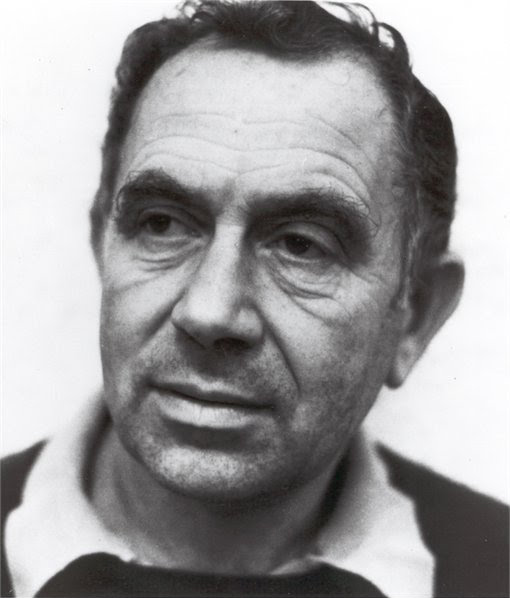Yehuda Amichai

22 May: Born as Ludwig Pfeuffer in Wurzburg, Germany. His family is Orthodox. He grows up speaking German, but learns enough Hebrew in religious school to participate in services at his father’s Orthodox synagogue.
The Pfeuffer family emigrates to Palestine, living briefly in Petach Tikvah before settling in Jerusalem. Ludwig adopts his Hebrew name, Yehuda.
As a teen, YA meets Ruth Herrmann; they fall in love.
YA volunteers for the Jewish Brigade of the British Army, and serves in WWII. While in the service, Ruth Hermann suggests his taking a new last name (a common custom among young Jews in Palestine at the time). Between them they settle on "Amichai," which means "My People Live" in Hebrew.
YA begins to be interested in poetry, reading modern English and American poetry, by authors such as Dylan Thomas, W.H. Auden, and T.S. Eliot.
YA is discharged from the British Army and joins the Palmakh, the underground pre-Israeli-state commando force. He fights with them in the Arab-Israeli War in 1948 (and with the Israeli army in the 1956 Sinai War and in the 1973 Yom Kippur War).
Ruth Herrmann leaves for the US. YA keeps up a correspondence with her, but she eventually marries another man, Eric Zielenziger.
YA writes in a 1980 poem ("The Rustle of History’s Wings, As They Used to Say"):
For five shillings I changed the Jewish name of my fathers
To a proud Hebrew name that matched hers.
That whore ran away to America, married
Some spice broker -- cinnamon, pepper, cardamom --
And left me alone with my new name and the war.
YA studies literature and biblical studies at Hebrew University in Jerusalem.
Now and In Other Days, YA's first volume of poetry, is published. Reviews note his distinctive colloquial voice. Subjects which before this were thought too mundane for poetry became appropriate poetic images: tanks, airplanes, fuel, administrative contracts, and technological terms figure in his work, reflecting YA's conviction that modern poetry must confront and reflect contemporary issues.
Poems, which is co-translated by Ted Hughes, is published. This volume brings YA to the attention of American readers.
Selected Poems of Yehuda Amichai, again co-translated by Hughes, is published. Hughes would remain good friends with YA and a life-long advocate of his work.
YA is awarded the Israel Prize for Hebrew Literature.
YA is invited by Israeli Prime Minister Yitzhak Rabin to read from his poems at the ceremony of the Nobel Peace Prize in Oslo. One of the poems he reads is "God Has Pity on Kindergarten Children."
22 September: YA dies of cancer in Jerusalem.